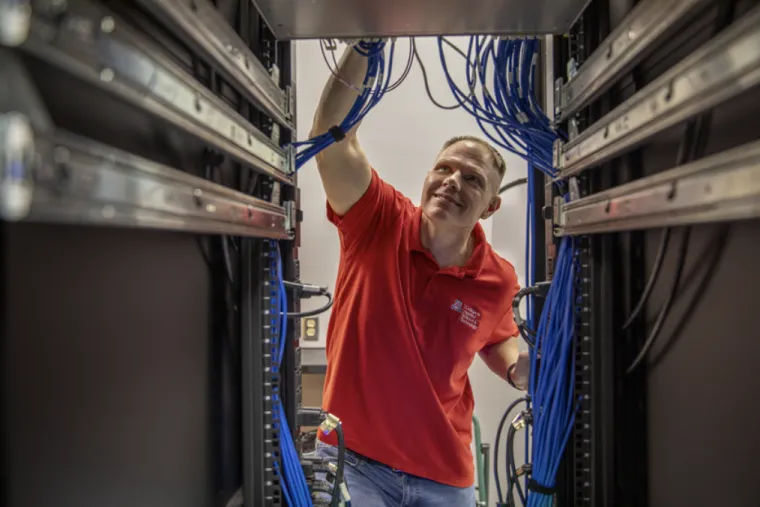Conversations with Rising Stars
PAUL WAGNER
As associate professor of Practice in the College of Applied Science and Technology (CAST), Paul Wagner is primarily focused on research related to cybersecurity education, training, workforce development and penetration testing. A 20-year Army veteran, he describes cybersecurity as a discipline that impacts all of us, while remaining accessible to everyone. Read about it in our Conversations with Rising Stars…

What initially attracted you to the current focus of research?
My current area of research is cybersecurity education, community outreach, and workforce development. I was put on this path when I was working with an academic advisor who introduced me to the program director for Basha High School's cybersecurity program. It provides a pathway to cybersecurity education and jobs; however, for students choosing to pursue another career, they will still have deep technical and analytical skills to support other degree programs and careers. The workforce development piece involves understanding the challenges of changing careers, both within and transitioning from the military. My view of education is that it is an enabler for career options and not a necessity. Cybersecurity and the opportunities we provide should enable students at any stage of their life to seek meaningful employment. We, as educators and our institution, should be a place where people can return for continuing education, additional degrees or certifications to support their career goals.
How have collaborations impacted my work on campus?
I believe collaborations are critical to the impact one can have in everything. No one person can be an expert in all things. Differing experiences, opinions, and thoughts can synergize efforts and bring about innovation. There have been many opportunities that came out of an initial meeting, conversation, or connections made by collaborators. Collaborations occur both on and off campus. I have found great collaborators in school systems, other universities, non-profits, government, industry and other educators.
Research breakthroughs take time, so what keeps you motivated in your daily duties?
Hearing from a former student or employee is just one example of what keeps me motivated. It is humbling that someone would reach out to me to update me on their lives months or years after I interacted with them. It is always amazing how a seemingly innocuous interaction can have an impact on someone's life. Additionally, the passion of different people working on the same problem is motivating. There are close partners in this space that reach out to each other when they are struggling for advice or just a positive word to get them moving and excited about the opportunities that are out there and the impact that we are having.
What about your experience at the U of A makes you want to continue your career as a Wildcat?
There are many experiences and opportunities that make me excited to keep working at U of A. The ecosystem that I have been part of to support initiatives across Arizona and nationally is one aspect. The non-profits, government organizations, community partners, educators and students provide an amazing opportunity to move the needle in cybersecurity education and cyber workforce development. I truly appreciate the opportunities and support of the university as well. One example is participating in the Research Leadership Institute, which continues to provide resources, training and, more importantly, connections with others to develop partnerships and collaborations.
When you describe your research to someone for the first time, what’s one major point you hope they understand?
Cybersecurity impacts everyone in one way or another. It is a diverse field that is accessible to anyone. My research focuses on providing education, training and opportunities for people to access this amazing field.

